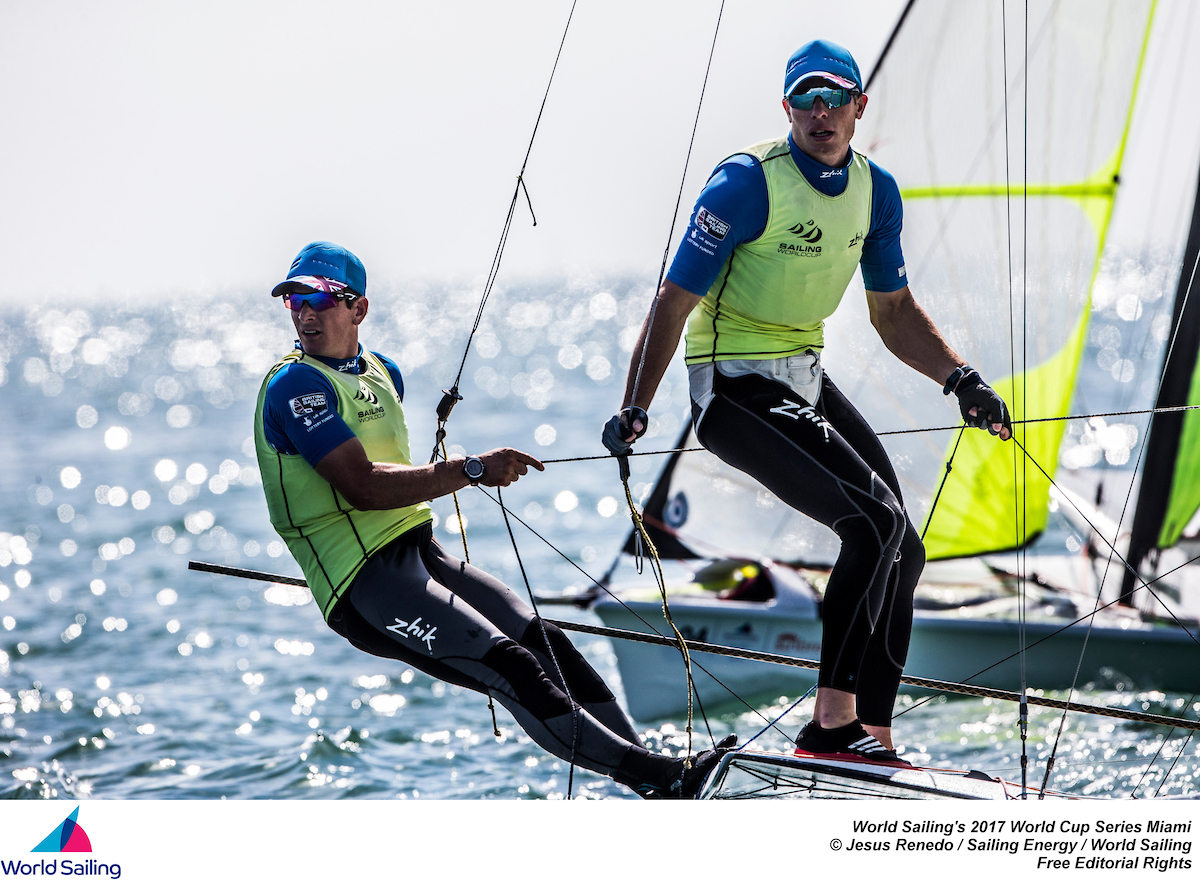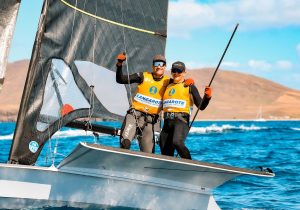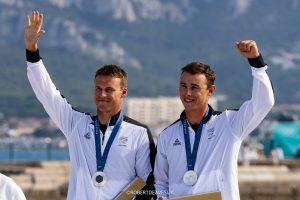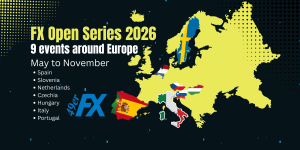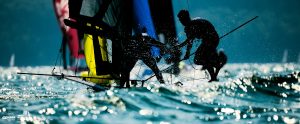With the World Cup Series secure going into the Medal Race, 49er sailors Dylan Fletcher-Scott and Stuart Bithell (GBR) sailed a clean race and largely stayed out of the fray. They finished fifth, capping off an impressive start to the Tokyo 2020 quad for this new team.
“It feels like we’ve gelled pretty well,” said Bithell, who won a silver medal at London 2012 in the 470. “There’s still plenty of work to do, but it’s nice to be on top of the podium.”
The battle for second was more interesting. It was nip and tuck all the way through the Medal Race for Austria’s Benjamin Bildstein and David Hussl. And no point of the race was more anxious than just before the second windward mark, when Bildstein and Hussl tacked just in front of a pack of boats, one of whom thought the Austrian team might’ve broken the rules. But the judges waved off the protest and Bildstein and Hussl held fourth place to the finish to claim the silver.
“The plan was to get top three in the Medal Race and that way we can stay on the podium,” said Hussl. “At one point [during the Medal Race] we were quite close to losing it, but at the end of the second upwind we [got in front of] some boats and it was like ‘OK, we are safe here.’”
Carl Sylvan and Marcus Anjemark (SWE) started the race in third, but when they slipped to last late in the race, the door opened for the Spain’s Diego Botin and Iago Lòpez Marra to seize bronze, which is what they did by finishing seventh.
Rio 2016 gold medallists Martine Soffiati Grael and Kahena Kunze (BRA) had a 17-point lead heading into the Medal Race, which meant that anything but last place would guarantee them the regatta win. They didn’t take any chances and steadily worked through the fleet after a conservative start to win the Medal Race and the gold.
“Our main goal was to have a free start and sail every puff and shift,” said a happy Kunze. “The first upwind was not good but we managed to come back and catch the Norwegians.”
The race for second and third was decided at two distinct points. Being over the starting line early effectively eliminated Helene Naess and Marie Ronningen (NOR), who started the day three points out of third, from podium contention. A few minutes later, fellow Norwegians Ragna and Maia Agerup, who started the day with a five-point lead, stamped their claim on silver by taking the lead at the top mark.
While the Agerup twins ran into some rough water on the final run and finished third, that was still good enough to secure second place in the regatta. Victoria Travascio and Maria Branz (ARG) finished sixth in the Medal Race and third overall.
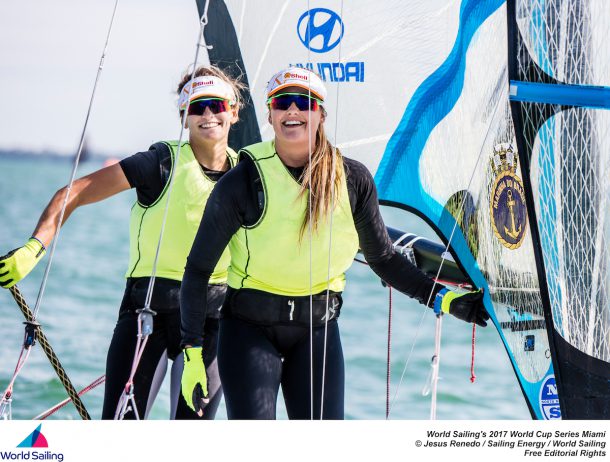
It was a British clean sweep in the Nacra 17 Medal Race with John Gimson and Anna Burnet taking the win, Ben Saxton and Nicola Groves in second and Tom Phipps and Nicola Boniface in third.
Saxton and Groves, who started the race with a nine-point lead over Phipps and Boniface, didn’t appear interested in leaving anything to chance as they executed a text-book pin-end start and raced off toward the left side of the course with Gimson and Burnet close behind.
With the way the breeze was shifting around, it would seem to be a risk to bet so definitively on one side of the course. But Saxton and Groves, who were sailing their first event since the Rio 2016 Olympic Games, had been next to flawless the second half of the regatta in similar conditions so there was every reason to think they’d made the correct choice.
By the windward mark it was apparent they had. Saxton and Groves rounded first followed closely by Gimson and Burnet. Those two teams would swap positions at the second windward mark, but that wouldn’t impact the overall standings. In fact, the podium didn’t change at all after the Medal Race with Phipps and Boniface taking silver and Nico Delle-Karth and Lauro Schöfegger (AUT) finishing seventh in the race and third overall.
“I think if you look at the beginning [of the regatta] that definitely shows a bit of rust,” said Groves. “Then we kind of remembered how to do it and got back in to our routines as the week went on and our results showed that.”
By Stuart Streuli

